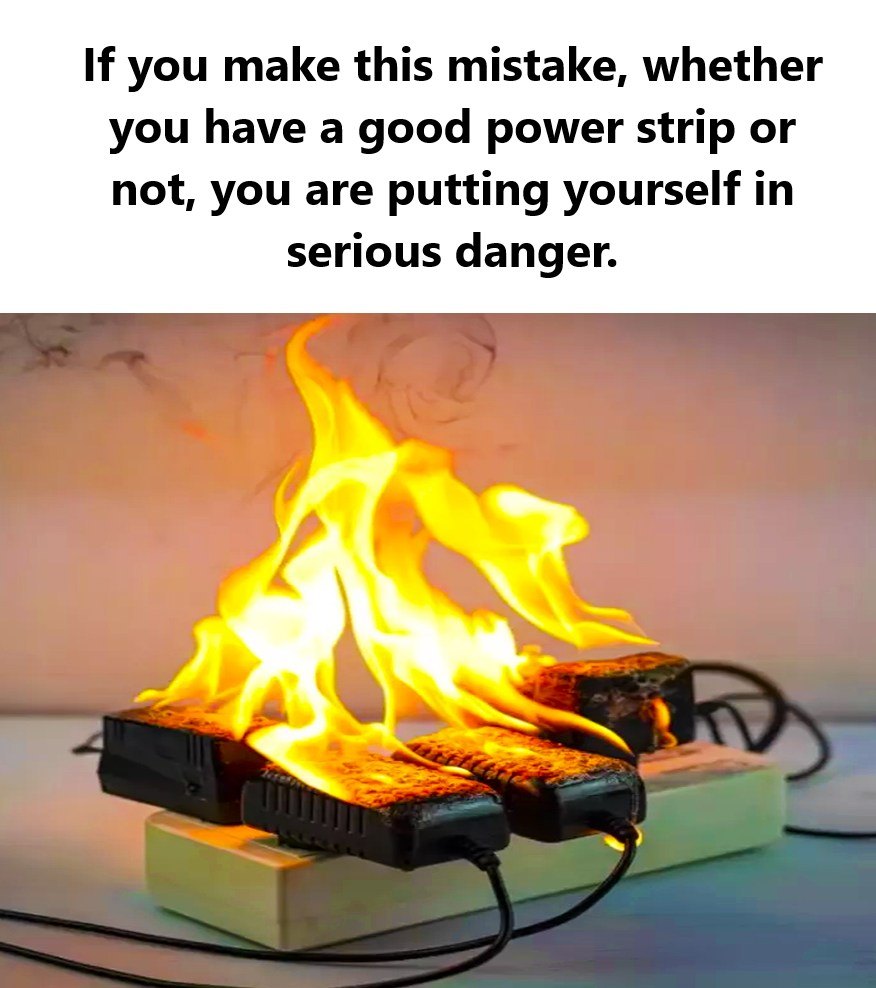ADVERTISEMENT
2. Regularly Check the Condition of Your Power Strips
Like all electrical equipment, power strips degrade over time. Inspect them regularly for signs of damage — such as frayed cords, burn marks, or loose sockets. If you notice any issues, replace the power strip immediately.
3. Never Overload a Power Strip
It’s tempting to plug multiple devices into one strip, but every power strip has a maximum capacity, usually listed in watts. Exceeding this limit can cause the strip to overheat and possibly catch fire. Always check the wattage of your connected devices and ensure you’re within the safe limit.
4. Avoid Daisy-Chaining Power Strips
Plugging one power strip into another (known as daisy-chaining) is a serious fire hazard. It can easily lead to overloading the circuit. Always plug power strips directly into a wall outlet.
The Fatal Mistake: Placement in Dangerous Locations
The Fatal Mistake: Placement in Dangerous Locations
Never place power strips in damp or humid areas, such as bathrooms or near kitchen sinks. Water and electricity are a deadly combination, and even small amounts of moisture can cause short circuits or fires.
Another risky location is near windows. At first, this might seem harmless, but during storms or heavy winds, an open or improperly sealed window can let in rain, soaking the power strip and creating a dangerous situation.
The safest place for a power strip is in a dry, well-ventilated area, away from direct exposure to water or extreme heat.
Additional Safety Tips
Turn off or unplug power strips when not in use, especially overnight or when you’re away. This conserves energy and reduces the risk of fire from a faulty appliance.
For older power strips without a power switch, it’s best to unplug them completely when they’re not needed.
In Summary:
Power strips are convenient, but only when used safely. Avoid cheap models, don’t overload them, never daisy-chain, and keep them away from moisture and windows. Taking these simple precautions can protect your home and loved ones from serious hazards.
ADVERTISEMENT
